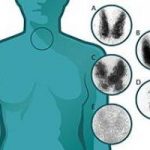Anorexia

People who are suffering from an eating disorder could starve themselves or eat large amounts of food. These individuals could be extremely preoccupied, almost to the point of obsession, about their body weight or shape. It’s true that an eating disorder can happen to anybody. Although females are more commonly the ones who have an …
Read More

Treating an eating disorder is a complicated process that generally involves the use of pharmaceutical medications, nutritional counseling, psychotherapeutic counseling and addressing any medical complications if present. The guidelines make recommendations for the pharmacological treatment of three types of eating disorders and these include; anorexia and bulimia nervosa and binge eating disorder. Most of the …
Read More

According to the South Carolina Department of Mental Health, an estimated 8 million people in the United States suffer from an eating disorder. However, statistics provided by the National Eating Disorder Association, estimates the number even higher and reports that 10 million women in America currently have an eating disorder. It Is Not All about …
Read More

The effects of starvation and malnutrition on the human body were well evidenced after the horrors of the Holocaust were discovered. Famine and being restricted from food led to an average daily intake of 200-800 calories in the concentration camps and ghettos. The results of this starvation and malnutrition resulted in an increased risk of …
Read More

As a young girl grows up, she is sure to encounter magazines and television shows that feature skinny, willowy, fashion models. Almost every young girl goes through an awkward stage right before sprouting up and transitioning through puberty. Some girls are lucky and never experience acne, baby fat, unruly hair, and a plethora of other …
Read More

As a human being, your body needs a certain amount of calories in order to function, even people who lead a sedentary lifestyle need calories. Not eating enough calories to meet your body’s needs can cause a variety of mild to severe mental and physical ailments. Knowing how many calories your body needs in order …
Read More

Diagnosing anorexia involves the consideration of many different factors. All areas of health – physical, psychological, emotional – must be evaluated in order to arrive at a proper diagnosis. Blood tests can be helpful when assessing the physical state of the patient, especially for the purposes of getting the individual immediate medical attention if there …
Read More

Renourishment is the process of restoring nutrition to someone who has experienced severe starvation for a period of time. In North America, malnourished patients with various medical concerns such as cancer, alcoholism, and swallowing difficulties due to neurological concerns, as well as anorexia nervosa should receive carefully monitored renourishment. It is important to provide the …
Read More

Refeeding syndrome symptoms may occur when a person receives a large intake of carbohydrates following a period of starvation. A severe shift in electrolytes takes place when an individual consumes a quantity of complex carbohydrates after a prolonged period of food deprivation. This in turn, causes fluid imbalances in the body, leading to the potentially …
Read More

Refeeding syndrome was first described in Japanese prisoners of war from World War II who had been starved while imprisoned. It is a complex of biological symptoms that can occur when food is reintroduced to people who are starved or severely malnourished. People who have not eaten for 5 or more days are at an …
Read More
 Eating Disorder Self Test. Take the EAT-26 self test to see if you might have eating disorder symptoms that might require professional evaluation. All answers are confidential.
Eating Disorder Self Test. Take the EAT-26 self test to see if you might have eating disorder symptoms that might require professional evaluation. All answers are confidential.
Find a Treatment Facility Near You
Click on a state below to find eating disorder treatment options that could be right for you.










 Eating Disorder Self Test. Take the EAT-26 self test to see if you might have eating disorder symptoms that might require professional evaluation. All answers are confidential.
Eating Disorder Self Test. Take the EAT-26 self test to see if you might have eating disorder symptoms that might require professional evaluation. All answers are confidential.